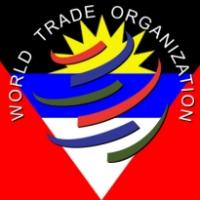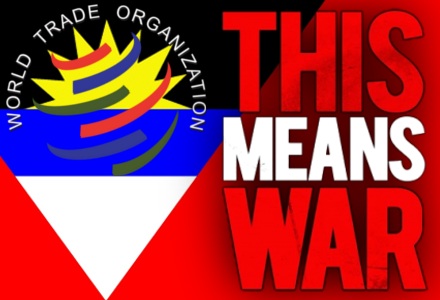 US trade officials are up-in-arms over attempts by Antigua & Barbuda to impose an annual $21 million World Trade Organization judgment stemming from a 2007 ruling regarding the United States’ refusal to allow Antigua-based online gambling companies fair access to the US market. Under that 2007 ruling by the WTO, the US was ordered to fork over $21 million a year to Antigua, an option that Antigua didn’t exercise because the country thought that a more palatable understanding could be made in the negotiating tables and that the US would come to its senses and abide by the same international rules it strictly enforces on other countries. If the US refused to pay up, the WTO granted Antigua authorization to collect by other means, including disregarding US copyrights to a value equal to the annual damages owed.
US trade officials are up-in-arms over attempts by Antigua & Barbuda to impose an annual $21 million World Trade Organization judgment stemming from a 2007 ruling regarding the United States’ refusal to allow Antigua-based online gambling companies fair access to the US market. Under that 2007 ruling by the WTO, the US was ordered to fork over $21 million a year to Antigua, an option that Antigua didn’t exercise because the country thought that a more palatable understanding could be made in the negotiating tables and that the US would come to its senses and abide by the same international rules it strictly enforces on other countries. If the US refused to pay up, the WTO granted Antigua authorization to collect by other means, including disregarding US copyrights to a value equal to the annual damages owed.
For the longest time, Antigua attempted to talk, yet the US seemingly brushed off these attempts despite multiple rulings by the WTO in favor of Antigua. America’s disregard of acquiescing to the WTO’s ruling finally wore thin on Antigua’s skin and the latter finally threw down the hammer.
With the time for talking apparently over, Antigua went for the jugular. And to no one’s surprise, US trade officials are crying foul, calling Antigua’s attempt to collect the annual $21 million judgment that the WTO ordered – a figure that now exceeds $100 million – as “government-authorized piracy”.
The United States protest follows an announcement by Antigua on its intention to propose a plan for collecting an existing 2007 WTO judgment over the United States’ failure to honor its previous GATS (General Agreement on Trade in Service) commitment regarding international online gambling. According to the folks from the Land of the Free, Antigua has no justification for taking any retaliatory action against them, in large part because of the latter’s supposed stubbornness in accepting America’s offers to put an end to the issue.
Antiguan officials have repeatedly debunked this claim, saying that any and all attempts by them to settle the issue have been met with indifference from their American counterparts. Adding to Antigua’s woes was the WTO’s recent decision to delay its authorization of Antigua’s imposition of trade sanctions on the United States. Antigua initially intended to include the issue in the WTO’s December 2012 list of ongoing disputed issues, but that was summarily denied because of the timing of the request. Nevertheless, Antigua did succeed in having it re-introduced in the WTO’s January 2013 dispute-settlement slate, which is expected to be held in the coming weeks.
Now that January 2013 is upon us and Antigua is gearing up to present its proposed plan to collect on the 2007 judgment, the US is on the defensive yet again, even taking the time in their statement to throw a foreboding lob at Antigua that if they proceed with their plans to exercise the option that has long been awarded to them, they could be on the receiving end of the proverbial cold shoulder from foreign investments.
“If Antigua actually proceeds with a plan for its government to authorize the theft of intellectual property, it would only serve to hurt Antigua’s own interests,” the US statement said. “Government-authorized piracy would undermine chances for a settlement that would provide real benefits to Antigua. It also would serve as a major impediment to foreign investment in the Antiguan economy, particularly in high-tech industries.”
The United States’ stubbornness to abide by the WTO ruling and their lack of effort to develop and agree upon a comprehensive solution to this issue has led to this. They’re continued stalling tactics will eventually run dry and it would be very interesting to see how the US reacts in the event the WTO rules – again – in Antigua’s favor.
